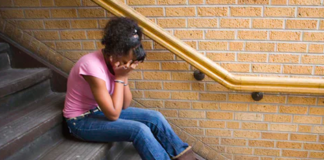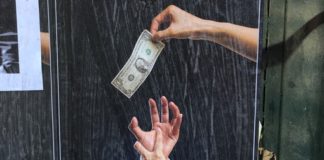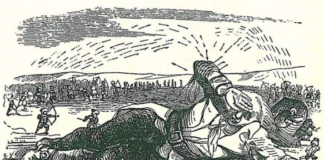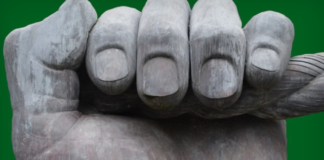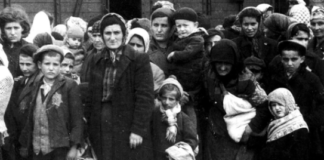Tag: Oppression
“All Real Living Is Meeting”: Brent Robbins on Love, Death, and...
Psychologist and existential thinker Brent Robbins reflects on a lifetime of work, the limits of psychiatric diagnosis, and what facing mortality has taught him about joy and human connection.
Psychology is Not What You Think: An Interview with Critical Psychologist...
MIA’s Ayurdhi Dhar interviews Ian Parker about critical psychology, discourse and political action, and whether psychology has anything left to offer.
Finding a Therapist Who Understands Oppression and Intersectionality
From The Establishment: "...research on race-matching in therapy suggests that for some clients, sharing a minoritized identity with a therapist may reduce guardedness, mistrust, and self-consciousness....
Stop Telling Chronic Pain Patients to Just Accept Their Pain
From Rooted in Rights: "Not only has the opioid epidemic and the media coverage of it made many people more suspicious of pain patients who...
Black Students Are Right to Want to See Black Therapists
From The Guardian: At Cambridge University, black and ethnic minority students can now specifically request to see therapists of color.
"At Cambridge, we’re now guaranteed to...
Bias Against Fat People is So Endemic We Don’t Recognize It
From Medical Xpress: People from all marginalized backgrounds are subjected to microaggressions and hostility every day, which has serious physical and mental health consequences. But our...
What About Fat Voices? Our Experience With Fat Invisibility
In this piece for Resilient Fat Goddess, psychologist and fat activist Rachel Millner critiques the pervasiveness of fatphobia, sizeism, and weight bias within the eating...
The 1%’s Mind Games: Psychology Gone Bad
In this piece for CounterPunch, Roy Eidelson explains the psychology of the persuasion and manipulation tactics utilized by the rich and powerful to maintain the oppressive status quo.
"Given their...
A Cultural History of Extraordinary Bodies
In this episode of the Yale Press Podcast, Lynne Vallone discusses our societal perception of, fascination with, and oppression against people with both small and...
The Frantz Fanon’s Foundation 2nd Rencontres
From the Blog of the APA: This past December, the Frantz Fanon Foundation celebrated its 10th anniversary in the "2nd Rencontres" of the Foundation. The...
Creeping Fascism: University “Unfit to Study” Policies
“Unfit to study” policies are “respectable fascism.” Where marginalization, exclusion, and control on the basis of putative “mental illness” is starting to happen in any arena, or to any designated group, we need to oppose the institutionalized oppression and stand in solidarity with those under siege.
Love: At the Intersection of Anti-Racism and Anti-Stigma
In this piece for Beyond Meds, Chris Cole examines the intersection of racism and oppression against people labeled "mentally ill."
"This is where social justice becomes...
Sometimes Giving a Person a Choice is an Act of Terrible...
From Aeon: We tend to believe that giving people more choices is inherently positive. However, forcing people to choose between two morally wrong options can be...
Trump’s Method, Our Madness
From The New York Times: The effects of Donald Trump's presidency on the American public resemble a psychotic-like state, inducing disorientation, anxiety, and distrust of one's reality.
"Of...
Rethinking Anxiety
In this interview with Jackie Dent, President of Clear Spot Club, social work lecturer Emma Tseris explains how labelling someone with an anxiety disorder fails...
How the Positive Only Movement has a Negative Impact
From Rooted in Rights: The Positive Only movement has a negative impact on the disability community by ignoring the realities of many disabled people, including...
Intelligence: a History
From Aeon: The idea of intelligence - specifically, the primacy of reason and rationality - has been used to justify privilege and domination throughout more than...
In a Post-Trump Election World: What is Insanity?
Insanity is often the result of chronic oppression, trauma, and a sense of injustice and hopelessness. Is it possible we are in the midst of a collective psychosis?
#Diversity? — What “Solidarity” Really Looks Like
What would it look like if national peer-run mental health organizations and other national leaders came out with statements in support of other movements' struggle for freedom from oppression? What would it look like if we were truly unified in solidarity? We would have community-based centers providing intentional support, open 24 hours a day, instead of crowded jail cells holding people in pain. It wouldn't be easy, but we have to do it.
Study Examines Women’s Experiences of Hearing Voices
An international group of researchers from multiple disciplines has published a historical, qualitative, and quantitative investigation into voice-hearing in women. The interdisciplinary project, freely available from Frontiers in Psychiatry, explores how sexism, exploitation, and oppression bear on women’s’ experiences of hearing voices.
“Mass Shootings’ Most Invisible Victims: The Severely Mentally Ill. We are...
On her blog, A Disordered World, psychiatric survivor Jeanene Harlick writes that “prejudicial rhetoric about the mentally ill, following mass shootings, is exacerbating the already-overwhelming stigma, discrimination and oppression we experience as an unrecognized and disadvantaged minority group.”
More on Recovery & Liberation: Oppression & Resilience
Just a few days ago, the Bazelon Center for Mental Health Law, perhaps the foremost legal advocacy organization for persons with disabilities in the country, issued its “vision of community integration” for the disabled, listing the “key principles” that should be utilized to achieve that aim.





